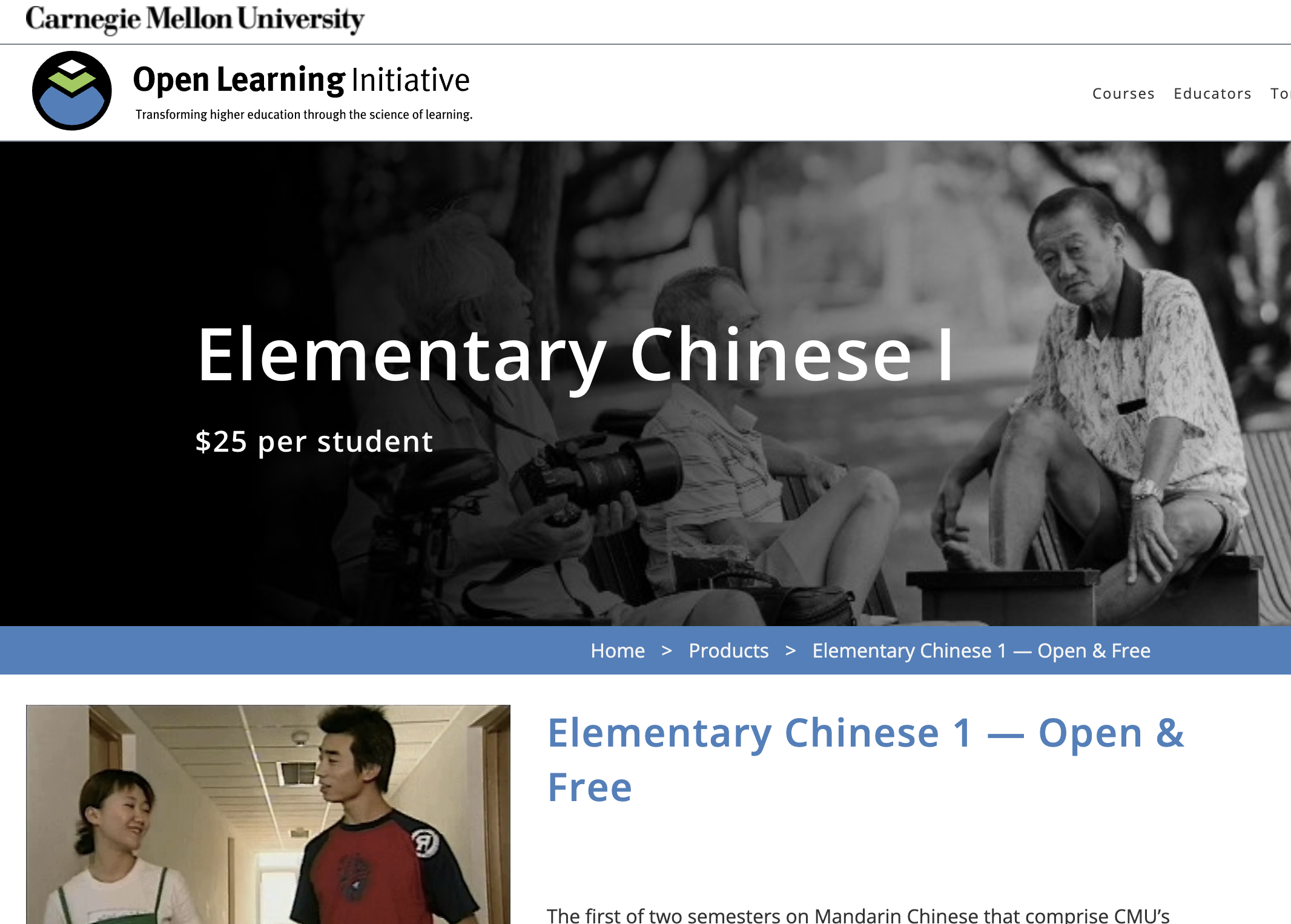I am a Chinese instructor at CMU.
Courses
At Carnegie Mellon University, I engage in a close collaboration with the Eberly Center for Teaching Excellence and Educational Innovation, working to redesign the "Elementary Chinese" course and harnessing AI technologies like ChatGPT to enhance the instruction of Chinese language and culture in university classrooms. I offer courses such as Elementary Chinese I, Elementary Chinese II, as well as their online equivalents, Elementary Chinese I Online (OLI version) and Elementary Chinese II Online (OLI version).

Elementary Chinese I
This course is for students with no prior experience in Chinese. Using a proficiency-oriented approach, students will develop contextually appropriate interpersonal communication skills in both written and spoken Chinese, develop reading and listening skills through various media, understand fundamental grammar, acquire vocabulary, and gain a basic understanding of Chinese cultures through class and extracurricular activities. Regular homework, quizzes, tests, and participation in class are mandatory (four in-class hours per week). Students will learn the phonetic transcriptions of Chinese (Pinyin) for speaking and listening as well as Chinese characters for reading and writing. The elementary level is also designed to help students learn to reflect and draw upon strategies used by good language learners in their second language study. A student with prior experience in Chinese must take the placement exam.

Elementary Chinese 1 Online (OLI)
Elementary Chinese 1 is the first half of a two-semester Mandarin Chinese course that aims to help beginners develop communicative competence in the basic four skills (listening, speaking, reading and writing) and culture of Chinese. The course curriculum is organized around the 5 Cs principles of the National Standards for Foreign Language Education for the 21st Century – Communication, Cultures, Comparisons, Connections and Communities. Elementary Chinese 1 covers 8 units. We recommend that students go through the units in order to take advantage of the systematic scope and sequence of the learning materials. However, the curriculum is also flexible for individuals and institutions to adopt and modify to meet their different needs, schedule and emphasis. The current course is available for low-cost use by instructor-led classes of enrolled students.
